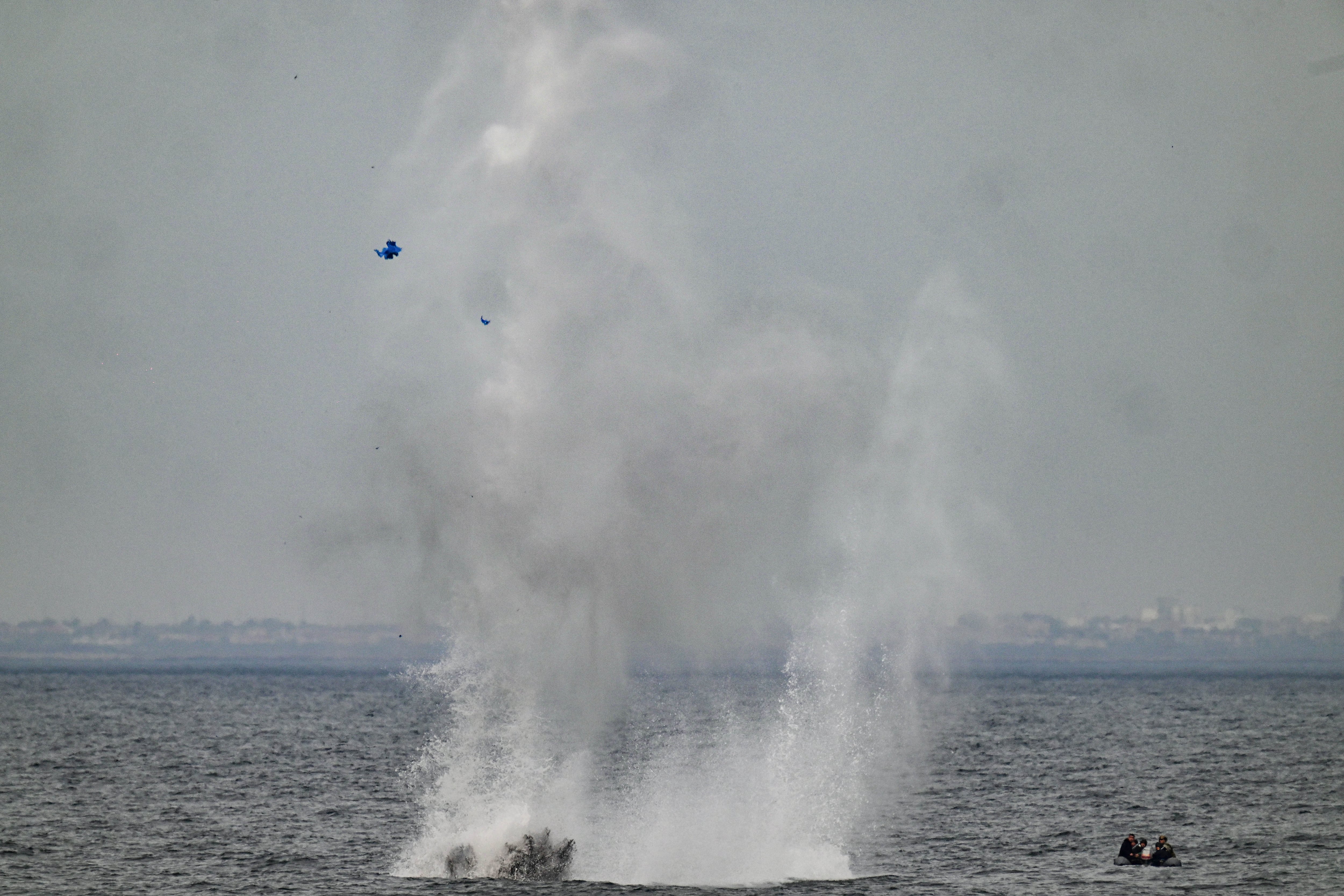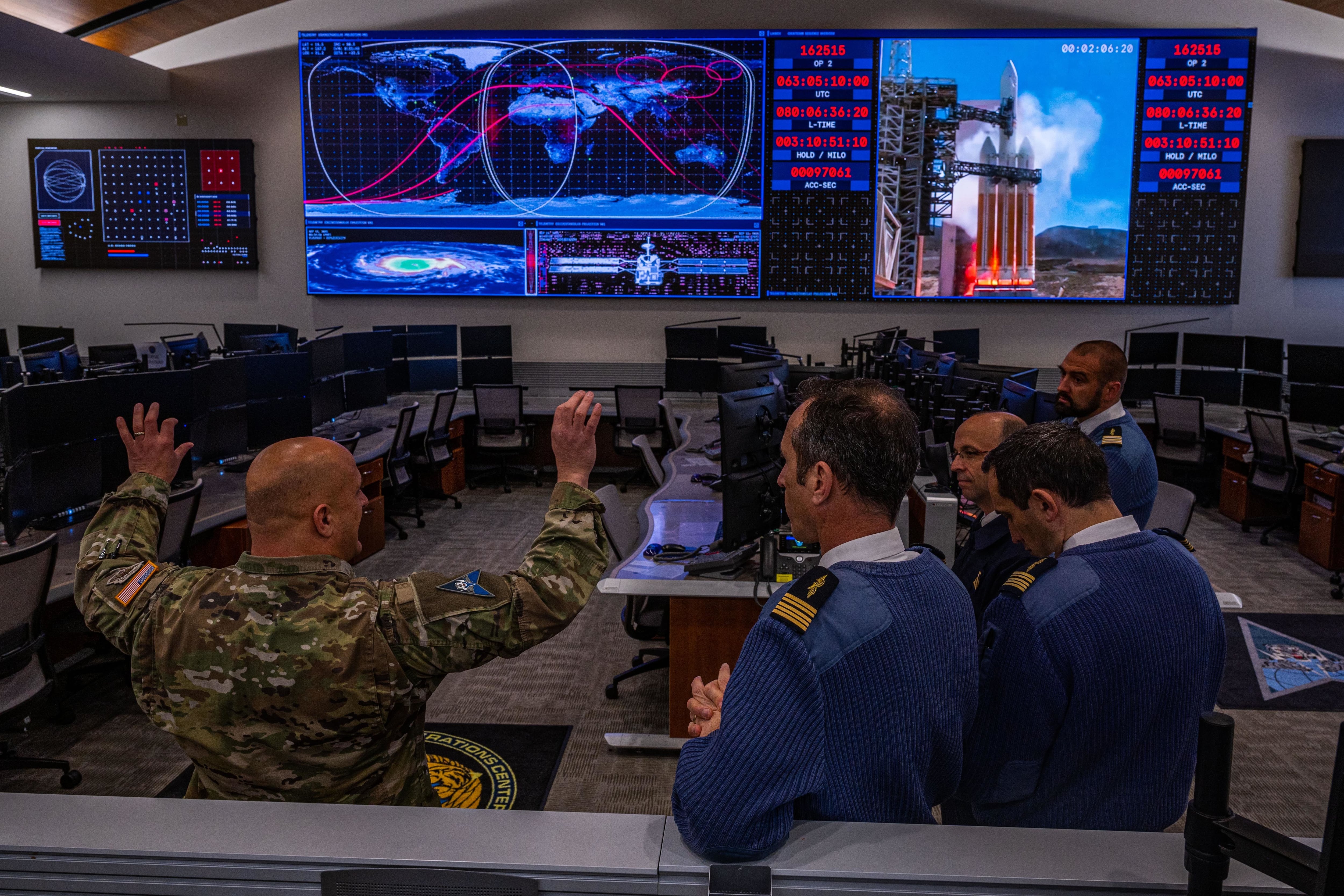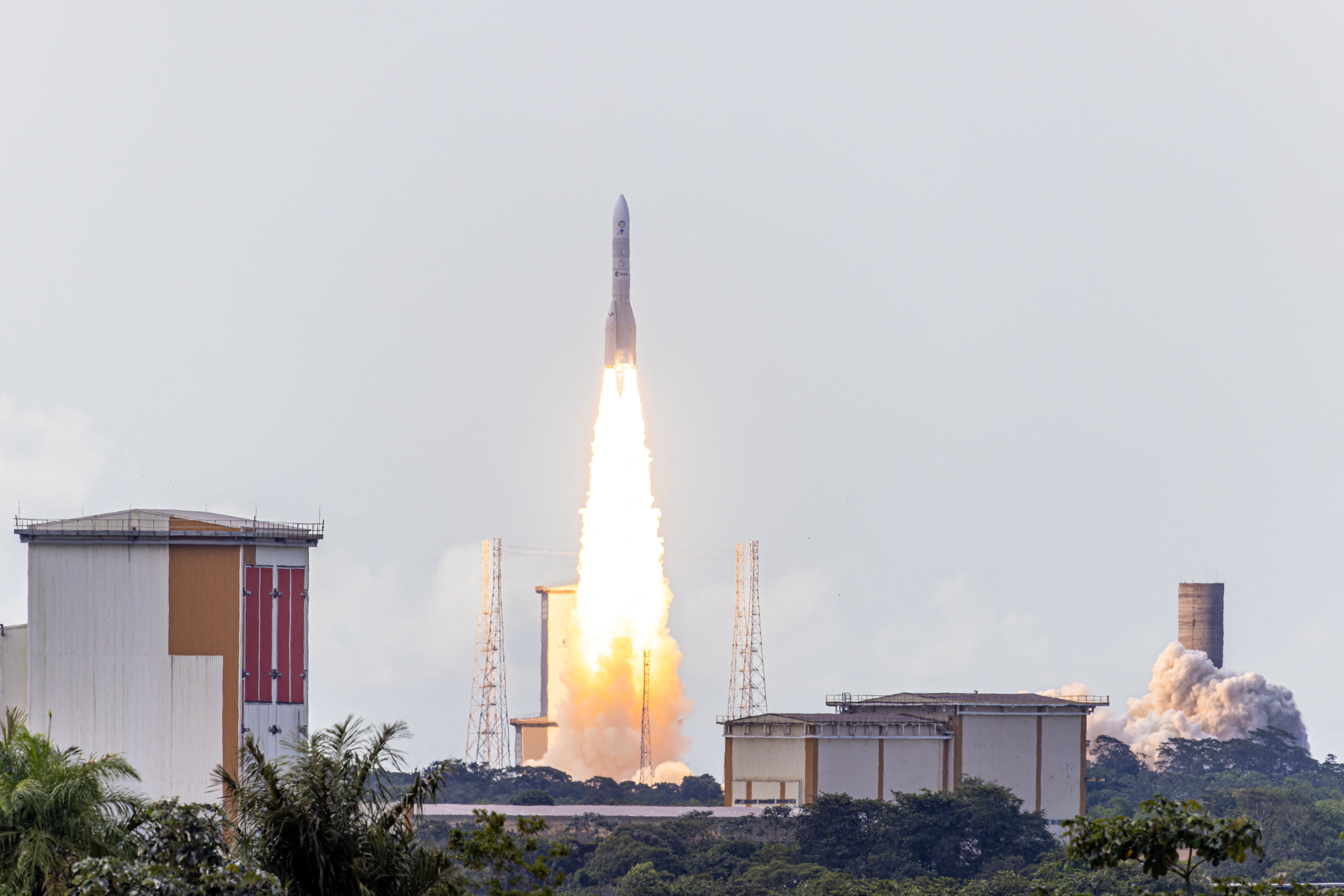LONDON — Surveillance satellite costs have fallen to the point where Britain's Defence Ministry should consider acquiring a sovereign capability rather than just relying on the U.S. government to provide high-grade data from space, according to Colin Paynter, the managing director of Airbus Defence and Space's U.K. arm.
Major reductions in the cost of surveillance satellites and launchers over the past few years would now allow the British to acquire their own capability for what the Airbus boss said was a sensible cost base.
"From the perspective of the strategic defense and security review [SDSR] I have been pushing the MoD to consider whether to purchase their own sovereign satellite surveillance capability. We are one of the only key defense nations not to have our own space capability surveillance. While we get excellent product from the U.S. fed down to the U.K., I believe having our own ability to obtain decision grade evidence is important," he said in an interview ahead of the Sept. 15 opening of the DSEi defense show here.
The U.S. has been providing Britain with surveillance satellite data for decades as part of a wider intelligence-sharing agreement between the two countries.
Airbus is Britain's leading space company producing military and civilian satellites and other space systems as well as running the U.K. military's Skynet 5 satellite communications network in a multibillion pound private finance initiative signed in 2003 and set to run until at least 2022.
Paynter said costs for small satellites of the type built by the Airbus SSTL operation in Guildford, southern England, had fallen significantly while performance had improved.
The executive pointed to the deal with Chinese civilian Earth observation company 21AT to provide three spacecraft at a cost of £110 million (US $169.7 million) including launch and insurance costs to demonstrate what was possible in price terms.
The satellites were launched by India's PSLV launcher in July and the company was waiting to see the output data from the 1-meter resolution DMC3 satellites.
"Previously the British were put off by the high cost of entry into space surveillance as well as saying they are perfectly happy with the relationship they have with the US," he said.
"But I think we have changed the performance price point where it could add real utility to Britain's overall ISTAR effort, providing persistent surveillance as well as having the ability to task and receive data exclusively for them and their allies, which they can't do at the moment," said Paynter.
Asked in a recent interview with Defense News whether surveillance satellites were in the scope of the SDSR, British Defence Procurement Minister Philip Dunne didn't answer the question directly but pointed to the increasing likelihood of the MoD investing in space and near-space capabilities.
"As you go closer to space there are innovative opportunities that are being considered as part of SDSR ranging from things not yet into production to things that are. An important element of our cooperation with the US and an important element in our innovation strand is in space, and as the cost of satellites and launches come down and as the UK industry becomes more successful, I think it's quite likely we will see more investment in space over the next five years and beyond," he said.
An MoD spokesman also declined to answer the question of whether a surveillance satellite capability might be in the SDSR mix as Britain looks to invest in new ISTAR capabilities.
"SDSR 2015 will consider the current and likely future national security risks and in turn the capabilities the armed services will need to address these risks in the future, however, no specific capability decisions have been made," he said
The innovative opportunities Dunne referred to likely includes the possible use of the Airbus Zepyhr 8 high-altitude, long-endurance UAV to provide persistent surveillance and communication relay capabilities from a machine able to sit on the edge of space for up to three months.
The vehicles are referred to as pseudo satellites by Airbus as they are able to fly at 70,000 feet. Airbus said last week it was in final negotiations with the British Ministry of Defence to supply three Zepyhr 8s for operational capability demonstration trials starting in 2017.
The MoD denies it has had made any decision to investigate the military utility of the high altitude satellite.
Email: achuter@defensenews.com
Andrew Chuter is the United Kingdom correspondent for Defense News.








